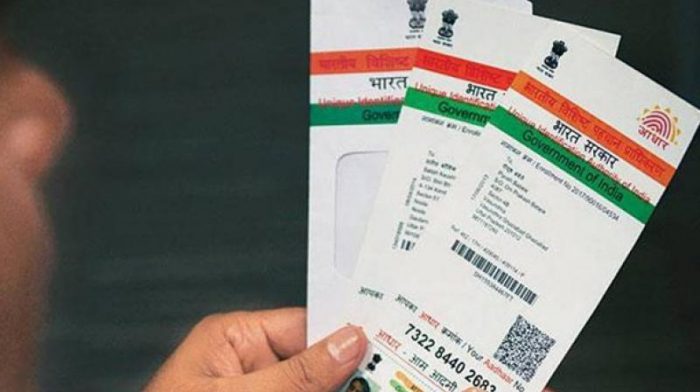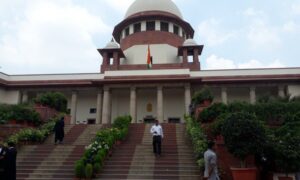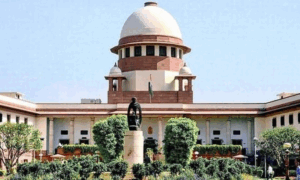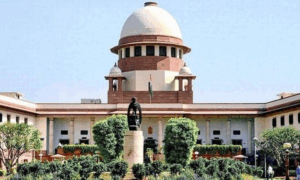
Representational image
The Supreme Court has declared that Aadhaar is Constitutionally valid. Justice AK Sikri has authored the judgement on behalf of him, CJI Dipak Misra and Justice Khanwilkar. Justice Chandrachud and Justice A Bhushan have written their individual opinions.
Supreme Court Justice Sikri while reading out verdict on constitutional validity of Aadhaar said there is a fundamental difference between Aadhaar card and identity.
Once the bio-metric information is stored, it remains in the system. Justice Sikri said it is secure and there is no possibility of obtaining a duplicate card. He said Aadhaar gives identitity to the poor.
— It is better to be unique than being best; Aadhaar means Unique.
— Attack on Aadhaar by petitioners is based on violation of rights, will lead to a surveillance State.
— SC says there has been minimal demographic and biometric data collected by UIDAI for Aadhaar enrollment.
The Supreme Court has said that Aadhaar cannot be mandated for opening of bank accounts. This include private and public sector banks.
Aadhaar cannot be mandatory for mobile connections; DoT notification to that effect unconstitutional.
The Court upholds Section 139AA mandating linkage with PAN.
Section 57 of Aadhaar Act which enables corporate bodies to seek authentication is unconstitutional, says the Supreme Court. This means private entities like cellphone companies, mutual fund companies, private schools, private hospitals, cannot ask for Aadhaar validation.
On Aadhaar security: — There is no possibility of obtaining a duplicate Aadhaar card.
— There is sufficient defence mechanism for authentication in Aadhaar scheme.
— Robust data protection regime has to be brought in place as early as possible,
— SC says Aadhaar authentication data cannot be stored for more than six months.
— SC says there is nothing in Aadhaar Act that violates right to privacy of individual.
The court also says the concept of human dignity has been enlarged in the judgement.
The Constitution Bench also strikes down the National security exception under the Aadhaar Act.
The court directs the government not to give Aadhaar to illegal immigrants.
It also says no child can be denied benefits of any schemes on not being able to bring their Aadhaar number.
It may be re- called that a five-judge constitution bench headed by Chief Justice Dipak Misra had on May 10 reserved the verdict on the matter after a marathon hearing that went on for 38 days, spanning four-and–a-half months.
As many as 31 petitions, including one by former high court judge K S Puttaswamy, have been filed in the matter.
When the judgment was reserved by the court, Attorney General K K Venugopal had told the bench, which also comprised Justices A K Sikri, A M Khanwilkar, D Y Chandrachud and Ashok Bhushan, that this matter had become the “second longest” one in terms of days of hearing after the historic Kesavananda Bharati case of 1973.
A key argument against the Aadhaar scheme is that it isviolative of the nine-judge bench verdict that had held that Right to Privacy is a fundamental right under the Constitution.
The Centre, the Unique Identificaiton Authority of India, the governments of Maharashtra and Gujarat and the RBI had argued in favour of the Aadhaar (Targeted Delivery of Financial and Other Subsidies, Benefits And Services) Act, 2016 and were represented by the Attorney General, Additional Solicitor General Tushar Mehta, senior advocates Rakesh Dwivedi and Jayant Bhushan and lawyer Zoheb Hossain.
During the arguments, the Centre had strongly defended its decision to seed Aadhaar numbers with mobile phones, telling the top court that it could have been hauled up for contempt if the verification of mobile users was not undertaken by it.
However, the court had said that the government had misinterpreted its order and used it as a “tool” to make Aadhaar mandatory for mobile users.


















